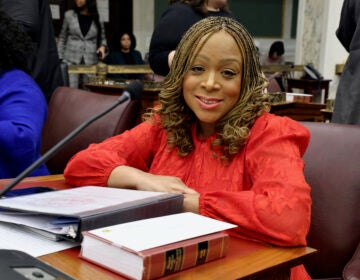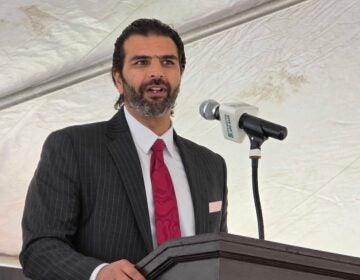HSP petition for financing criticized

Photo courtesy of Brad Maule, check out his complete portfolio at www.phillyskyline.com/lovecopter
July 29
By Kellie Patrick Gates
For PlanPhilly
Earlier this month, HSP Gaming – the developers of SugarHouse Casino – filed a petition asking the Pennsylvania Gaming Control Board to allow them to obtain financing to build an interim casino, which is slated to open in June 2010.
Just a tad more than two pages long, the document summarizes the interim plan to build a 40,000 foot gaming floor with 1,700 slot machines, three food and beverage outlets, and about 1,465 parking spaces. The board gave its nod to the interim plan in May.
HSP says the financing documents it has with the potential lender require Gaming Board approval for to close on the loan.
The petition document says nothing about how much money HSP will borrow, from whom they will borrow it, or whether there are any other conditions the lender may place on the loan.
Critics say casinos should have to reveal such information. But the Gaming Control Board says Pennsylvania’s gaming law deems it confidential.
“In public, SugarHouse should have to reveal their financing,” said Paul Boni, attorney for Casino-Free Philadelphia. “Why should we trust the black box that is the Gaming Control Board?”
SugarHouse is following the process set up by the State Legislature, said Douglas Harbach, spokesman for the Pennsylvania Gaming Control Board. There is no other filing mandated by the PGCB that requires more financial detail, he wrote in an email.
But Boni and the other anti-casino activists aren’t the only ones who feel there needs to be more transparency. State Sen. Larry Farnese will today send a letter to Gaming Control Board Chairman Gregory C. Fajt asking that “all information accompanying or related to HSP’s petition be made available to the public.”
Harbach said the Gaming Control Board’s Office of Enforcement Council could request more detail from SugarHouse. The OEC has 30 days to file a response to SugarHouse’s July 10 petition. It has not yet done so. But even if the OEC asks for more information, “any financial documents would not be public because they would be proprietary information deemed confidential through Section 1206 of the (state gaming) Act,” Harbach said.
Farnese disagrees. “I understand that there is proprietary information that is part of each and every business – I’m an attorney, and I practice in that area,” he said. “But I do believe that when it comes to the casinos and gaming, there should be a lessened degree of confidentiality and a heightened degree of public participation and disclosure. Especially if the financial stakeholders change in a project, all should be made public.”
Farnese said he believes the burden to prove that releasing information would be harmful to SugarHouse or any casino should be on that casino and the Gaming Control Board.
Farnese is one of the authors of Senate Bill 711, which calls for changes in the Gaming Act, including a change in what is considered confidential and what must be made public. A companion bill remains in committee in the House, he said. But Farnese believes much of SugarHouse’s financing information should and could be made public under existing law. “I don’t think the owners’ phone numbers and home addresses should be there, but I do believe the amount of money paid, the money at stake, where the financing is coming from, who the stake holders are, interest rates, and terms of the loan or conditions” should be public.
SugarHouse spokeswoman Leigh Whitaker declined to comment.
Earlier this year, SugarHouse chief investor Neil Bluhm revealed some financial information about the interim plan at the May hearing at which the board gave it’s approval. He said then he was optimistic about financing for the interim facility for two reasons: The SugarHouse team has $160 million in equity investment in the project – more than double the $140 million they will need to borrow. SugarHouse is projecting the interim facility will yield between $60 and $70 million in cash flow, and while banks are no longer willing to loan upwards of four times cash flow, they’ll still loan 2.5 times that amount.
Contact the reporter at kelliespatrick@gmail.com
WHYY is your source for fact-based, in-depth journalism and information. As a nonprofit organization, we rely on financial support from readers like you. Please give today.






